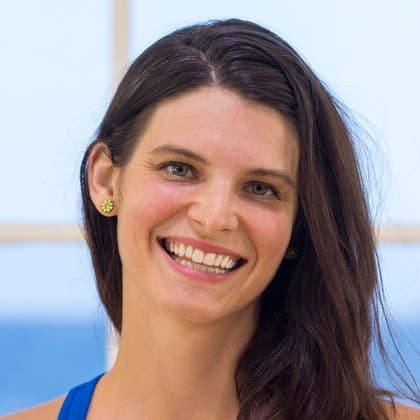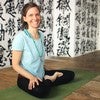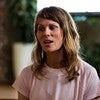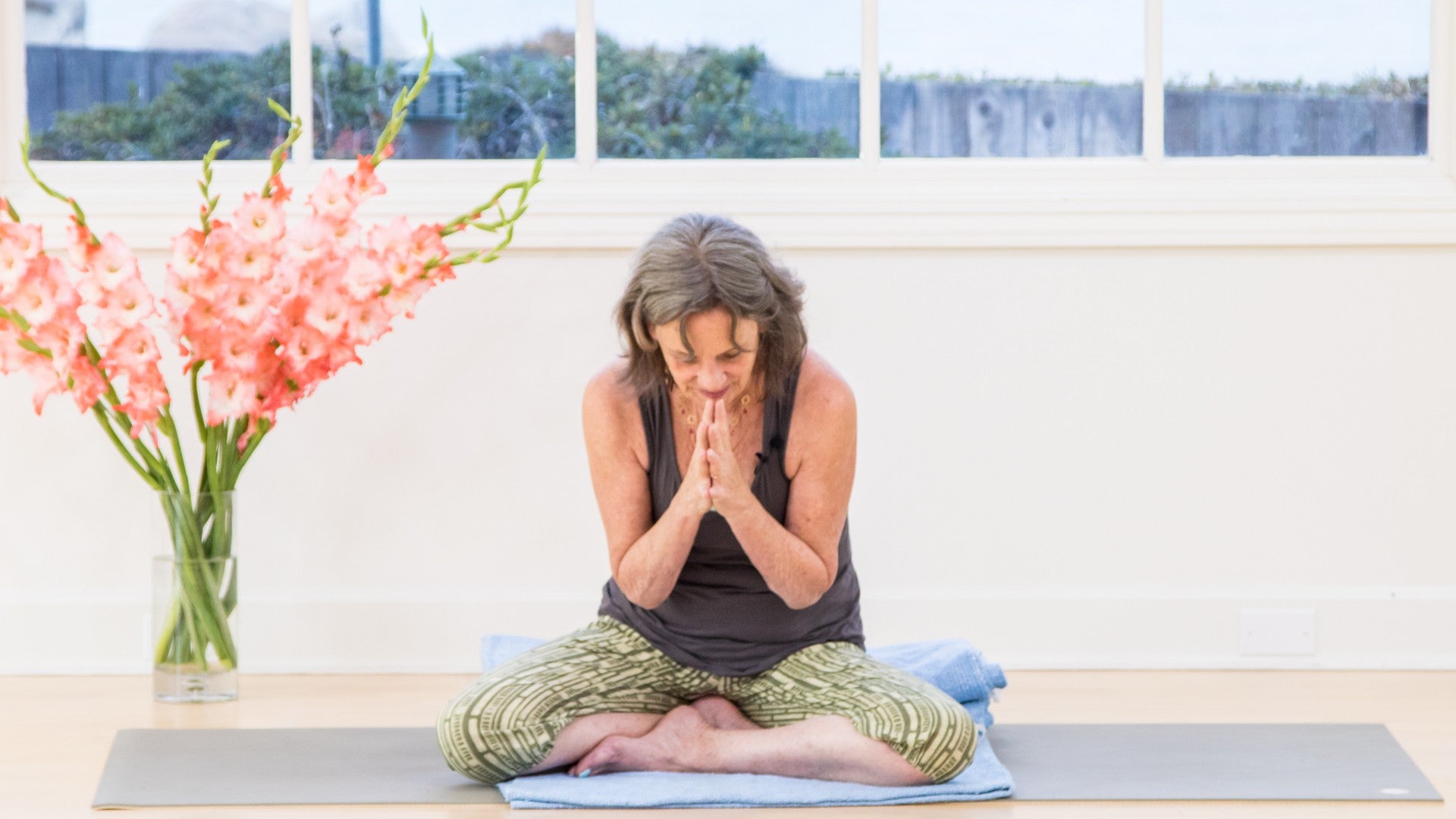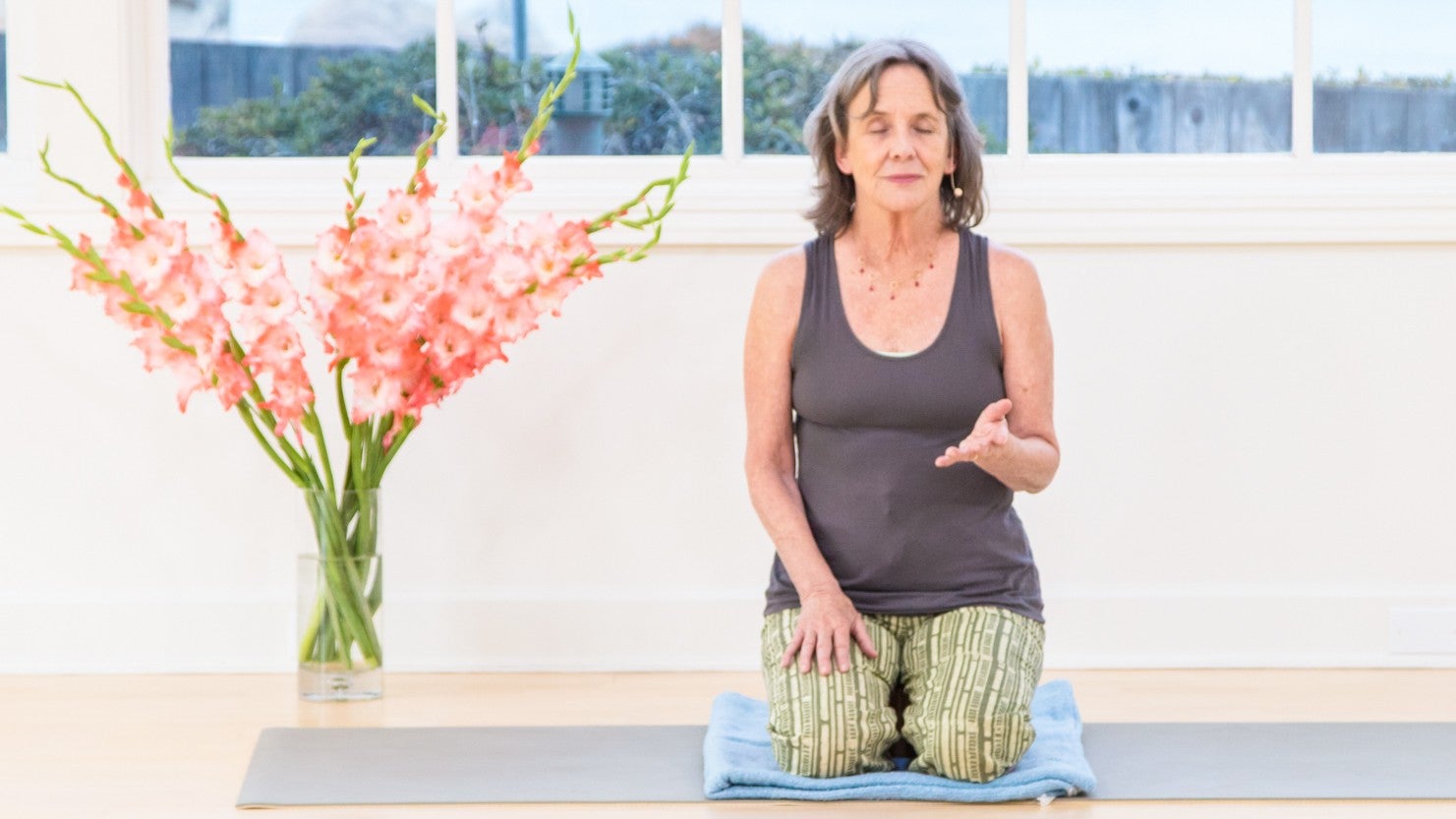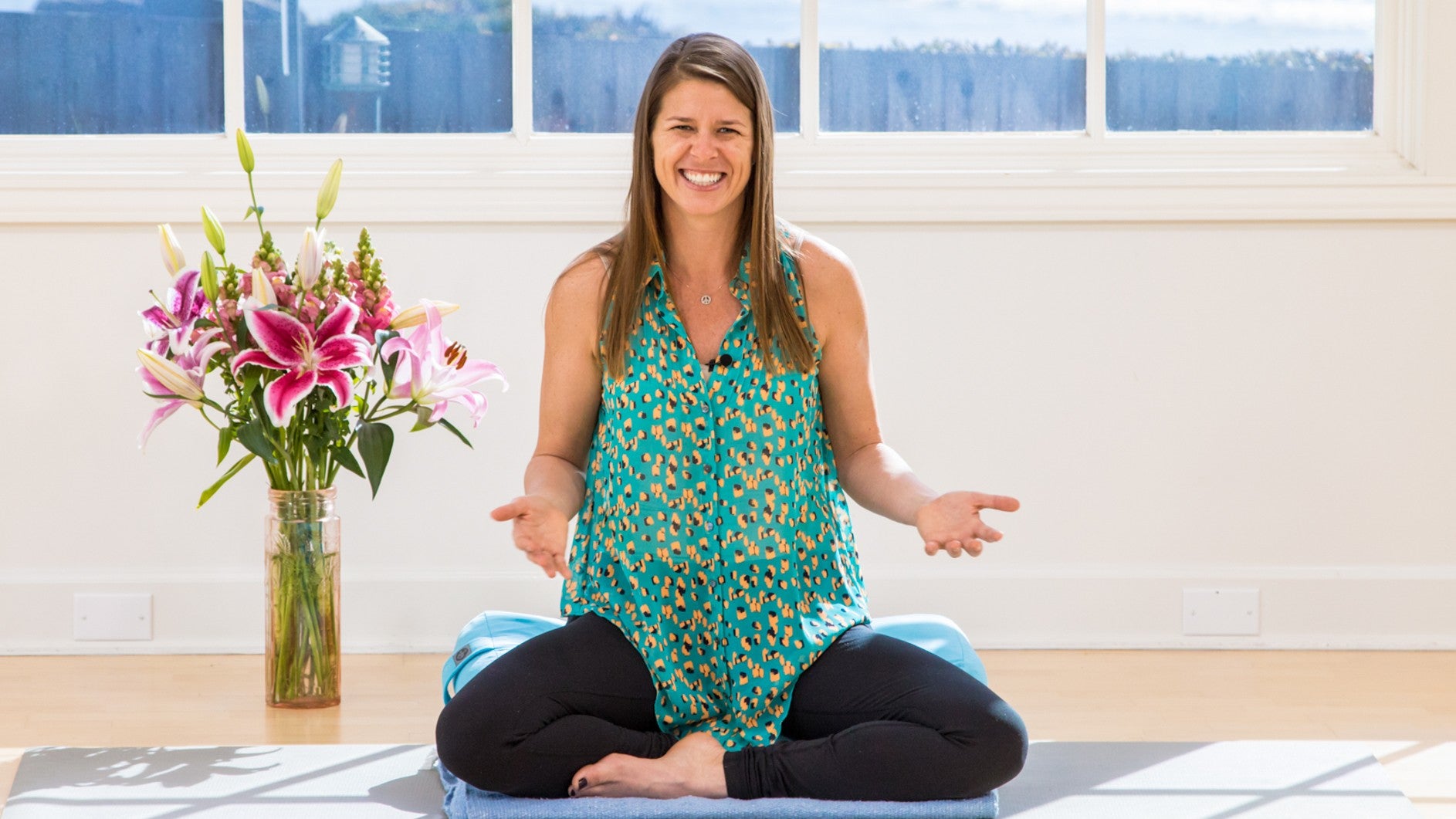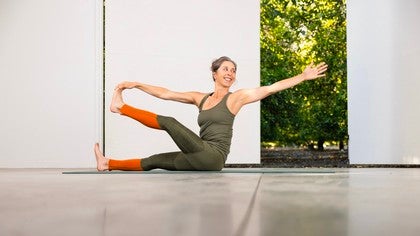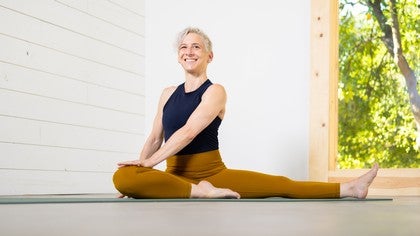
The Real Promise of Doing Yoga
When I tell people I am a yoga teacher, most immediately look at my body. I know what they are looking for—someone serene, smiling, and slim. A confirmation of the promise of modern yoga. The once-overs aren’t surprising—yoga, like other physical practices, is perceived primarily as external. Yoga in the West comes wrapped up in a strange mix of patterned Lycra and mysticism, mala beads and fat-burning workouts. The two most common questions I am asked are: Will yoga help me lose weight and have you been to India?
It’s common for a teacher’s body to become the mission or standard by which others are measured. In class, students observe a teacher doing something, and then try to do it. On social media, we double tap on platitudes about self-love and pretty poses with a rhapsodic mix of envy and respect. We want the high-tech organic clothes our teachers wear in class, the kale-fueled bodies underneath, and the perfectly setting suns that backdrop their handstand pics on Instagram. All of this is ‘doing yoga,' and here’s a secret: I’m not very good at it. I can touch my toes, sure, and stick my foot behind my head, but I don’t like platitudes, I don’t practice every day, and yes, I’ve been to India, but it wasn’t for a spiritual dip in the Ganges. I eat meat and drink wine. I’ve been teaching and practicing full-time for years, but still have no visible six-pack or a handstand that I can hold long enough for a photo. And that whole self-love thing? Still working on it.
I started yoga when I was in high school. My sister was into it, and insisted it would help with a back injury I sustained in my early teens. I kept going for many years after because there was something else in those classes I needed. Yoga class was a place to fit in with my body. I was young, insecure, and craved the validation and affirmations a vinyasa class provided. If I didn’t get a chance to take class, there was a sense of loss unrelated to any endorphin rush or relaxation. I did everything one should: cleanses, retreats, teacher trainings, wore all white, wore all black, wore all Lycra, sent positive vibes. But even after my first teacher training in my early twenties, there was a manic disembodiment to how I practiced and lived. I’m not an extreme person, but for years my relationships to most things was defined by extremes, including friendships, food, and a fragile sense of self.
Part of that was age—I was 23 when I started teaching and was desperate to be taken seriously. I was under the impression that everything I did was a reflection of who I was as a person. The marketing speak that sells yoga as a path of self-improvement instead of self-acceptance, the rise of 'fit influencers,' and expectation that my body was my job, all overwhelmed what was already practically tenderized by the never-ending anxiety of just existing as a young woman in the world. Insecurity coiled in my mouth like a snake, and started speaking for me—not what I said to other people or my students, but how I spoke to myself. "I wish I had a body like yours," students would say, and I’d cringe internally: Really?
It's a funny thing to be teaching others to feel empowered in their bodies, and struggling to fit inside your own. When I use my body to teach, when it's bundled into the package of 'yoga practice,' I become both a mirror and a measure against which people compare themselves, the message and the messenger.
All of this began to seriously stress me out.
As a teacher, I work hard to be a mirror; how I am in my body matters. But here’s the truth: I don’t like my body. Or, maybe: I haven’t always liked my body, I don’t like my body, I will not like my body again. It is present progressive. As I write this, I’m searching for a crystalized example to share, a singular moment of self-hatred to tie around this narrative. But the truth is, there are none (or maybe there are too many). I am normal in my abnormal measurements. I’ve gone through periods of disordered eating, but never would I say I had an eating disorder. I went to intensely physical power yoga because I wanted to be different and the teachers and postures were a promise that I could be. In those classes I felt safe, insured somehow against the onslaught of emotions I was unprepared to process. Outside of class, no prescribed pose to assume, all I believed was how I felt.
I don’t even remember what changed, what forced the question: Do I do yoga because I love myself or because I hope one day I will? Maybe it was seeing the same question in so many of my students, or maybe it was just time I learned how to actually deal with myself. Without any great revelation or hitting rock bottom, I realized: The problem was not my body or what my yoga practice looked like, the problem was how I thought about it.
Muscles are tricked into stretching by contraction first. Movement is palliative, whether it is walking to the coffee shop instead of driving, dancing in the privacy of your apartment, surfing, or doing yoga. Movement allows me to experience for one second, or sometimes several at a time, a release from my body and from myself. So I tricked myself by switching the focus on what I couldn’t do—stick a handstand, triangle pose without a block, love myself unconditionally—to what I could do—ride my bike, run, dance, touch my toes, walk two miles to work.
If I can’t love my body all the time, I can at least take pleasure in its functionality. My heart pumps, my spine (despite an insecure inward curl) insists on holding me upright, my eyelids twitch. Bodies change constantly, quickly and then slowly, and quickly again, only perceptible to a certain eye or a pair of rarely worn jeans. Understanding this was a revelation, a long restrained admission. It was even kind of funny.
Yoga, as a system of self-care, suggests we must come to terms with ourselves—not the future self and not the past self. The self reading this, the self writing it. Learning to listen to my body’s honesty—my hamstrings in Mysore trying to get into a complicated pose, my stomach near a pizza joint when the pies are hot out of the oven, kissing someone—bringing me back to what is real. At the risk of a cheesy yoga teacher moment, learning to value the way my body responds to life around it, rather than react to the influences of emotions and outside messaging, has become my real practice. This is the promise of ‘doing yoga,’ not handstands, high vibes, or rock-hard abs, but a reflection of presence.
There is a lot said about trusting your body in a yoga class. And not without reason: Bodies are vehicles and shells and weapons and temples. They tell us when we are hungry, scared, turned on, or tired. Yoga is a means of articulating; it helps us to feel acutely. I’m still not good at yoga in the way that so many of my peers are. I can’t tell you I’ve figured it all out, because I haven’t, and maybe I won’t. In practice, we chase after muscle, and look for meaning, which always changes and becomes new again. The meaning has a mirror, too. A kind of samsara—a cycle of constant becoming. Do I do yoga because I love myself, or because I hope one day I will? The mirror responds. You have. You do. You will. Present progressive.
Comments
 "vehicles and shells and weapons and temples." Jai Maa
"vehicles and shells and weapons and temples." Jai Maa
You need to be a subscriber to post a comment.
Please Log In or Create an Account to start your free trial.
